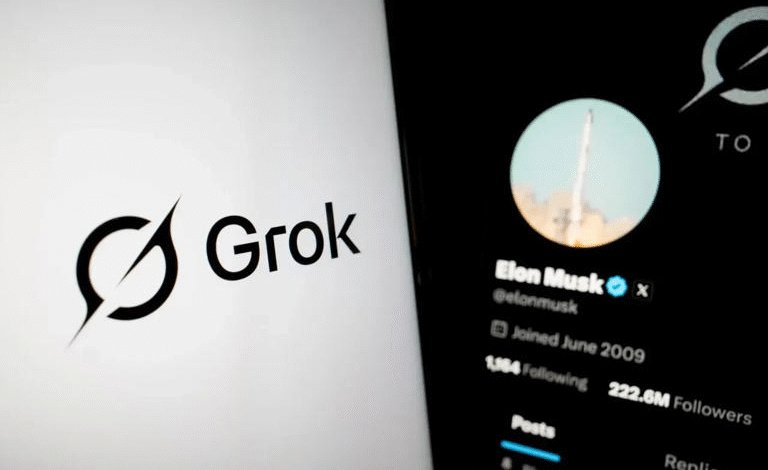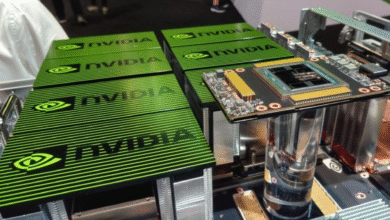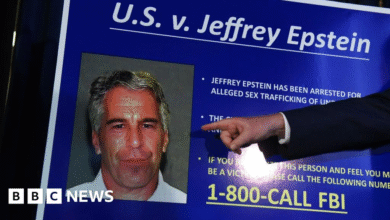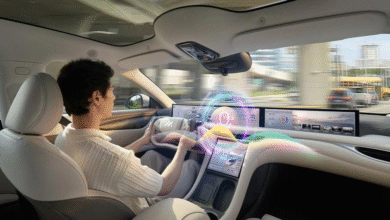Elon Musk OpenAI Takeover: Meta’s Involvement Revealed

In a shocking turn of events, Elon Musk is making headlines with his attempt to orchestrate a staggering $97.4 billion takeover of OpenAI, previously co-founded by him. Recent court filings have unveiled that Musk reached out to Meta CEO Mark Zuckerberg for financial backing in this ambitious endeavor, highlighting his discontent with OpenAI’s transformation into a for-profit model. This move comes amidst a tangled web of legal disputes between Musk and the organization, further complicated by allegations of harassment and breach of contract. As OpenAI emerges as a powerhouse in the AI landscape, Musk’s ambitions with his own venture, xAI, reveal the escalating competition in the field of artificial intelligence, challenging other corporate giants. The situation raises essential questions about the future of AI financing and ownership in a rapidly evolving technological world, especially with influential figures like Zuckerberg potentially taking sides.
A recent controversy has unfolded in the world of artificial intelligence as Elon Musk seeks to reclaim influence over OpenAI through a monumental acquisition proposal. Initially founded as a non-profit entity alongside Sam Altman, OpenAI has shifted toward a for-profit model, a transition that has sparked Musk’s ire. In a surprising bid to rally support, Musk approached Meta’s Mark Zuckerberg to discuss possible financial commitment to this acquisition strategy, which has now become embroiled in a complex lawsuit. The competitive landscape of AI research and development has dramatically intensified, with Musk’s new venture, xAI, leading the charge against OpenAI, now considered a dominant force with backing from tech giants like Microsoft. This situation not only exemplifies the fierce rivalry between prominent figures in technology but also raises vital discussions about the ethics and implications of AI ownership and governance.
Elon Musk’s Bold Proposal to Take Over OpenAI
In early 2025, Elon Musk’s ambitious proposal to finance a $97.4 billion takeover of OpenAI came to light amidst ongoing tensions between him and the organization. The details of this takeover were unveiled through court filings that revealed Musk’s outreach to Meta’s CEO, Mark Zuckerberg, for potential financing collaboration. This move reflects Musk’s growing dissatisfaction with OpenAI’s evolution into a for-profit model, which he cares deeply about due to its implications for ethical AI development. His original vision for OpenAI as a non-profit, focused on safe and accessible AI technology, contrasts sharply with its current trajectory under the leadership of Sam Altman.
The legal dispute stemming from Musk’s takeover bid showcases the complex dynamics in the artificial intelligence sector, where competitive pressures are mounting. Musk’s earlier friendship with Altman has soured significantly, leading to accusations and counterclaims that now dominate headlines. OpenAI’s contention that Musk’s takeover initiative is merely a façade to undercut its operations indicates the high-stakes game being played in the field of AI. This case will likely set a precedent on how partnerships and corporate maneuvers unfold in this rapidly evolving technological landscape.
The Legal Clash: Musk vs. OpenAI
The ongoing lawsuit between Elon Musk and OpenAI marks a significant chapter in the contentious relationship between major players in the artificial intelligence arena. Since Musk co-founded OpenAI as a non-profit in 2015, the organization has transitioned to a for-profit model, prompting Musk to label this shift as a betrayal of its original mission. The legal filings reveal not just Musk’s desire to regain control over AI’s direction but also reflect broader concerns about the commercialization of AI technology. OpenAI’s move to counterclaim against Musk underscores its determination to protect its interests amid these turbulent accusations.
Moreover, Musk’s grievances are compounded by his establishment of xAI, a competing entity aimed at challenging OpenAI’s dominance. The lawsuit is not only a personal battle but also encapsulates the ongoing competition between AI firms vying for supremacy. With technology companies like Meta making aggressive investments in AI, including lavish compensation packages to attract top talent, the stakes continue to rise. This litigation serves as a warning—players in the AI field must be prepared to navigate not only the technical challenges but also the intricate legal frameworks governing these revolutionary technologies.
Meta’s Involvement in the OpenAI Lawsuit
Meta’s role in the ongoing legal tussle between Elon Musk and OpenAI has sparked considerable interest as the social media giant seeks to enhance its AI capabilities. Musk’s outreach to Zuckerberg for financial backing indicates the magnitude of his ambition and the willingness to forge alliances to influence the AI landscape. However, Zuckerberg’s reluctance to sign the letter of intent signals potential complications in Musk’s strategy, highlighting the precarious nature of partnerships in this competitive sector.
As Meta continues to aggressively expand its artificial intelligence investments, there remains a palpable tension in the air. Musk’s request for Meta’s support reflects the challenges faced by traditional companies as they compete against the likes of OpenAI. The courtroom revelations indicate that Meta is both a player and a passive observer in this feud, navigating its own interests amid the legal proceedings. This involvement raises questions about the interconnectedness of these tech giants and how their decisions will shape the future of AI development.
The Impact of Musk’s xAI on OpenAI
Musk’s establishment of xAI has emerged as a pivotal development in the ongoing rivalry with OpenAI. As a response to OpenAI’s increasing prominence in the AI sector, xAI aims to position itself as a formidable competitor by employing aggressive strategies in AI research and development. This not only showcases Musk’s ambition to control AI’s future path but also raises questions about the ethical implications of such competition. Observers are left wondering how this new entity will approach AI ethics compared to OpenAI’s current trajectory.
Furthermore, Musk’s aim with xAI emphasizes the dynamic nature of the AI industry, where innovation is often driven by the fierce rivalry among tech moguls. The establishment of xAI likely invites scrutiny regarding the motivations behind Musk’s actions—whether they stem from genuine concern for ethical AI or competitive posturing. As Musk’s legal skirmishes with OpenAI unfold, the rise of xAI could significantly impact the strategies adopted by other companies in the tech sphere, including those seeking to develop counter-strategies against OpenAI’s proprietary advancements.
The Future of AI Financing and Legal Battles
The discussions surrounding Musk’s attempts to secure financing for his OpenAI takeover shed light on the evolving landscape of AI financing. As companies vie for leadership in AI technology, the need for substantial capital has never been greater. The court filings illustrate Musk’s understanding of this reality and his attempts to leverage connections in the industry, particularly with Meta, to facilitate his ambitious goals. In an environment where funding is often tied to ethical considerations and technological outcomes, how financing impacts the battle for AI power cannot be overstated.
Moreover, we see how the legal battles surrounding AI ventures are beginning to mirror those in other competitive industries. Musk’s ongoing lawsuits against OpenAI signify a trend where intellectual property and competitive strategies increasingly intersect with traditional legal frameworks. As the world observes these unfolding legal dramas, it becomes crucial for companies to strategically navigate funding, partnerships, and potential litigations in order to protect their positions in an industry where stakes are rising exponentially.
Analyzing the OpenAI Lawsuit from a Business Perspective
From a business viewpoint, the OpenAI lawsuit exemplifies the cutthroat environment of the tech industry, especially within the realm of artificial intelligence. Elon Musk, who has historically championed the ethical landscape of AI, now finds himself in direct opposition to the very organization he helped establish. This litigation not only reveals the underlying tensions but also raises significant questions about the future of corporate governance in AI. The financial implications of Musk’s takeover attempt suggest a re-evaluation of how partnerships and financial interests can impact innovation and ethical considerations in technology.
The case could also catalyze shifts in investor behavior, as stakeholders may reassess their commitments to AI-focused companies amid the uncertainties of legal disputes. As Musk’s xAI challenges the established norms set by OpenAI, these events could lead to a transformation of the AI financing landscape, where ethical implications and business models are scrutinized more rigorously than ever before. How these external pressures shape the future of AI development remains to be seen, but it’s clear that the ramifications of this lawsuit will echo throughout the industry.
Understanding OpenAI’s Shift to a For-Profit Model
OpenAI’s transition to a for-profit model under Sam Altman has been a pivotal turning point in the organization’s history, resulting in significant backlash from co-founder Elon Musk. This shift reflects a wider trend in the tech industry where companies are increasingly pressured to generate profits while innovating. The decision has raised concerns about the original mission of OpenAI, which was to promote safe and beneficial AI for everyone, contrasting starkly with the profit-driven motives seen in many tech enterprises today.
Musk’s opposition to this for-profit model highlights a critical debate in the AI sector regarding the balance between commercialization and ethical accountability. As OpenAI continues to secure significant investments, including backing from powerful entities like Microsoft, the implications of this business model become increasingly complex. With Musk spearheading counter-efforts through xAI, the competitive dynamics of the AI field may redefine how companies approach funding and ethical considerations moving forward.
The Role of Social Media in the OpenAI Dispute
The interplay between social media and the ongoing dispute between Elon Musk and OpenAI cannot be understated. Musk has frequently utilized platforms to share his thoughts about OpenAI’s trajectory, often engaging in derogatory remarks that have heightened tensions. This digital discourse not only reflects personal vendettas but also has the potential to sway public perception and investor sentiment regarding the companies involved. In an industry where reputation can significantly impact market value, Musk’s social media presence plays an essential role in shaping narratives.
Moreover, as OpenAI attempts to subpoena Meta for communications related to Musk, it underscores how social media interactions can become pivotal in legal proceedings. The convergence of social media discourse and litigation points to broader implications for corporate communication strategies moving forward. Companies must now navigate not only their internal operations but also the public conversation surrounding their actions, as these dialogues can have real-world ramifications for business and technology development.
Concluding Thoughts on Musk and OpenAI’s Future
As the legal battle between Elon Musk and OpenAI unfolds, the future of both companies remains uncertain. Musk’s overtures towards a grand takeover and his establishment of xAI represent strategic moves in a rapidly evolving technological landscape. The implications of these actions go beyond personal animosities; they may signal significant shifts in how AI companies are structured and managed in the future. With ethical considerations and business motivations colliding, the AI sector stands at a crossroads.
Looking ahead, the outcomes of these legal challenges will likely redefine the boundaries of competition, funding, and governance within AI. Stakeholders from investors to researchers will be closely monitoring how this dispute evolves, as it carries lessons for the broader technology sector. Musk’s ambitions, coupled with OpenAI’s established position, create a compelling narrative that highlights the balance between competition and ethical responsibility in shaping the future of artificial intelligence.
Frequently Asked Questions
What is the status of Elon Musk’s OpenAI takeover proposal?
In early 2025, Elon Musk proposed a $97.4 billion takeover of OpenAI, but Meta CEO Mark Zuckerberg did not sign the associated letter of intent. The proposal is part of an ongoing legal dispute, where Musk is also suing OpenAI over its transition to a for-profit model.
How did Meta’s Mark Zuckerberg respond to Elon Musk’s request for financing the OpenAI takeover?
Meta CEO Mark Zuckerberg received a letter of intent from Elon Musk regarding the financing for the OpenAI takeover but did not endorse the proposal. Reports suggest that Meta has been investing heavily in AI, which may have influenced Zuckerberg’s decision.
What are the legal implications surrounding Elon Musk’s OpenAI lawsuit?
Elon Musk’s lawsuit against OpenAI centers on accusations of breach of contract related to its for-profit model. OpenAI has counterclaimed that Musk’s takeover bid was a ‘sham’, suggesting that the legal proceedings could significantly affect both parties.
What is the relationship between Elon Musk and Sam Altman in the context of OpenAI?
Elon Musk and Sam Altman co-founded OpenAI in 2015 as a non-profit. However, their relationship has since soured, particularly as OpenAI shifted to a for-profit model under Altman’s leadership, prompting Musk’s legal actions and his proposal to take over the organization.
What initiatives has Elon Musk launched in response to his frustration with OpenAI?
In response to his frustrations with OpenAI, particularly regarding its for-profit transition, Elon Musk founded xAI in 2023, aiming to create a competing entity in the AI landscape, distinct from OpenAI.
How has OpenAI reacted to Musk’s accusations and takeover proposal?
In reaction to Musk’s takeover proposal and accompanying lawsuits, OpenAI has described Musk’s actions as harassment and a smear campaign. They’ve also sought to subpoena Meta for communications related to the takeover discussions.
What are the implications of OpenAI’s demand for documents related to Musk and Meta?
OpenAI’s demands for documents concerning communications with Elon Musk and Meta suggest a strategy to gather evidence regarding Musk’s intent and actions surrounding his proposed OpenAI takeover, which they argue were excessively burdensome.
Why is Elon Musk concerned about OpenAI’s for-profit model?
Elon Musk’s concerns about OpenAI’s for-profit model stem from his belief that such a shift could compromise its original mission as a non-profit organization developed to ensure safe AI development, which he initially co-founded.
What investments is Meta making in AI that relate to the OpenAI takeover context?
Meta is reportedly investing heavily in AI, offering compensation packages exceeding $100 million to attract top talent from organizations like OpenAI. This activity adds a layer of competitive tension associated with Musk’s OpenAI takeover discussions.
What potential impact could the outcome of Musk’s OpenAI lawsuit have on the AI industry?
The resolution of Elon Musk’s lawsuit against OpenAI could set significant precedents regarding corporate governance, ownership rights, and the ethical framework surrounding AI development, which could ultimately influence the broader AI industry.
| Key Point | Details |
|---|---|
| Musk’s Financial Proposal | Elon Musk proposed a $97.4 billion takeover of OpenAI, seeking help from Meta’s CEO Mark Zuckerberg. |
| Legal Proceedings | The proposal is part of a lawsuit between Musk and OpenAI in a federal court, where OpenAI may counterclaim. |
| Musk’s Frustration | Musk criticized OpenAI’s shift from a non-profit to for-profit under Sam Altman’s leadership. |
| Deteriorating Relationships | Musk and Altman were once friends but have become adversaries as OpenAI grew with Microsoft’s support. |
| OpenAI’s Response | OpenAI called Musk’s bid a “sham” and accused him of harassment through legal actions and derogatory comments. |
| Zuckerberg’s Involvement | Zuckerberg was contacted about financing options but did not endorse Musk’s proposal. |
| Meta’s Investments | Meta is investing heavily in AI to attract talent from OpenAI, including offers over $100 million for top researchers. |
Summary
The Elon Musk OpenAI takeover controversy unfolds as Musk seeks substantial financial backing to acquire the AI organization he once helped establish. Following his grievances about OpenAI’s transformation, legal disputes have emerged, marking a significant rift between former allies. The situation raises critical implications for the future of AI innovation and competitive dynamics in the industry.




